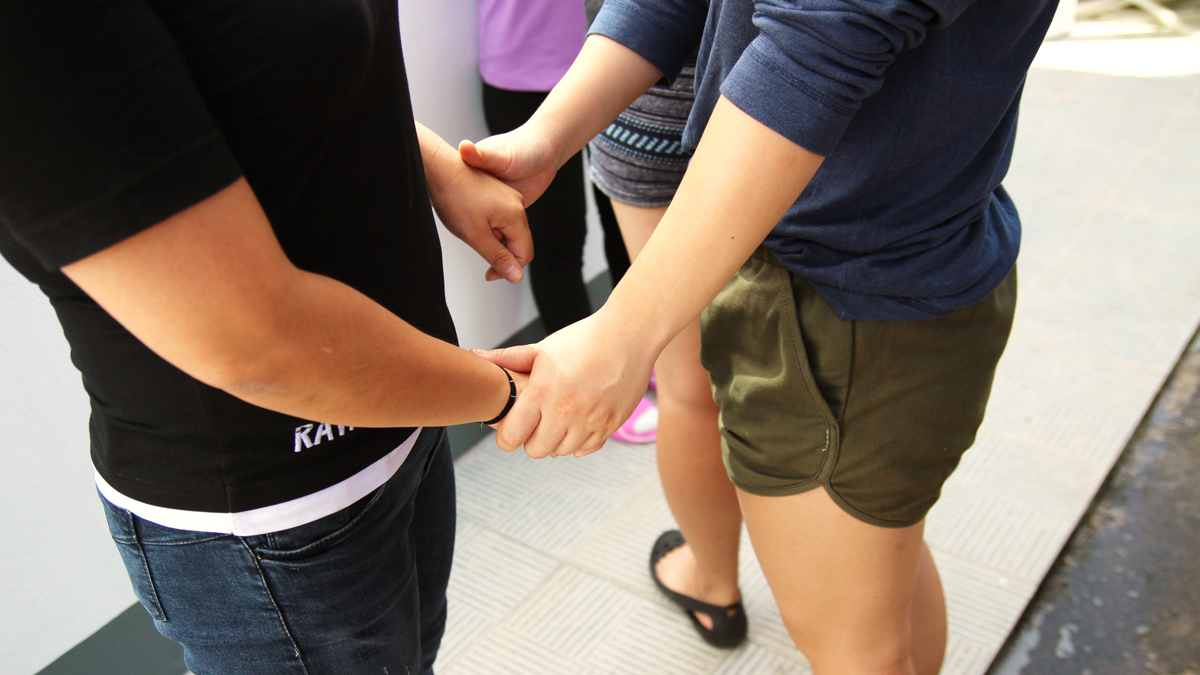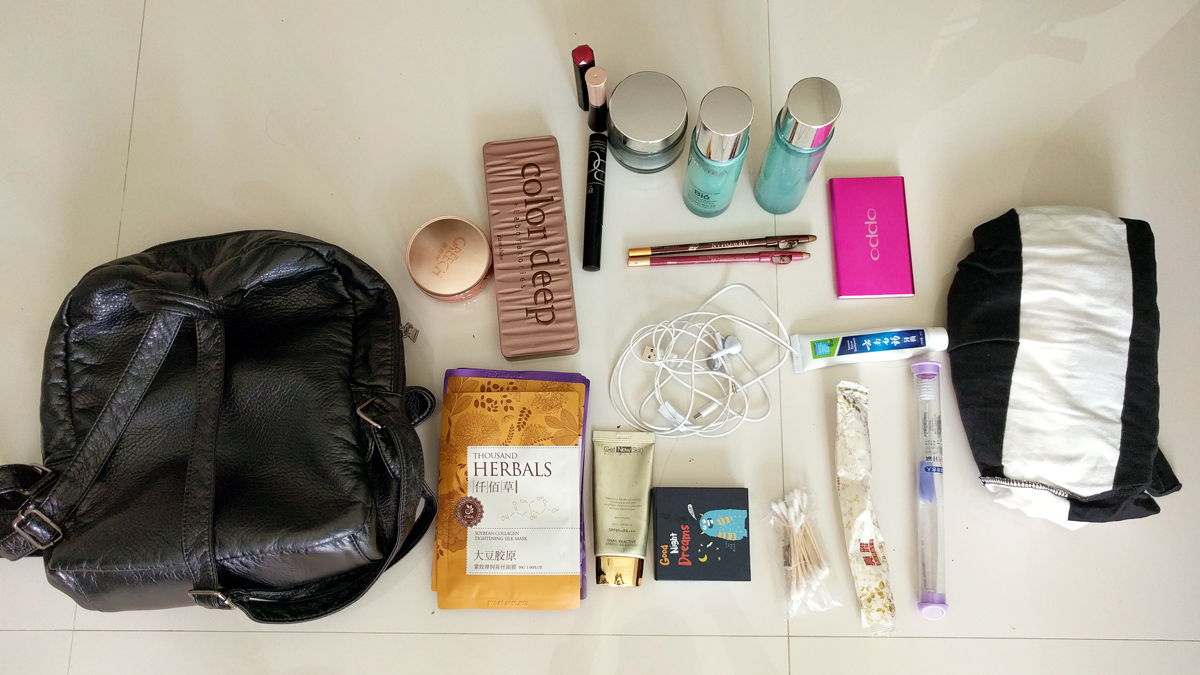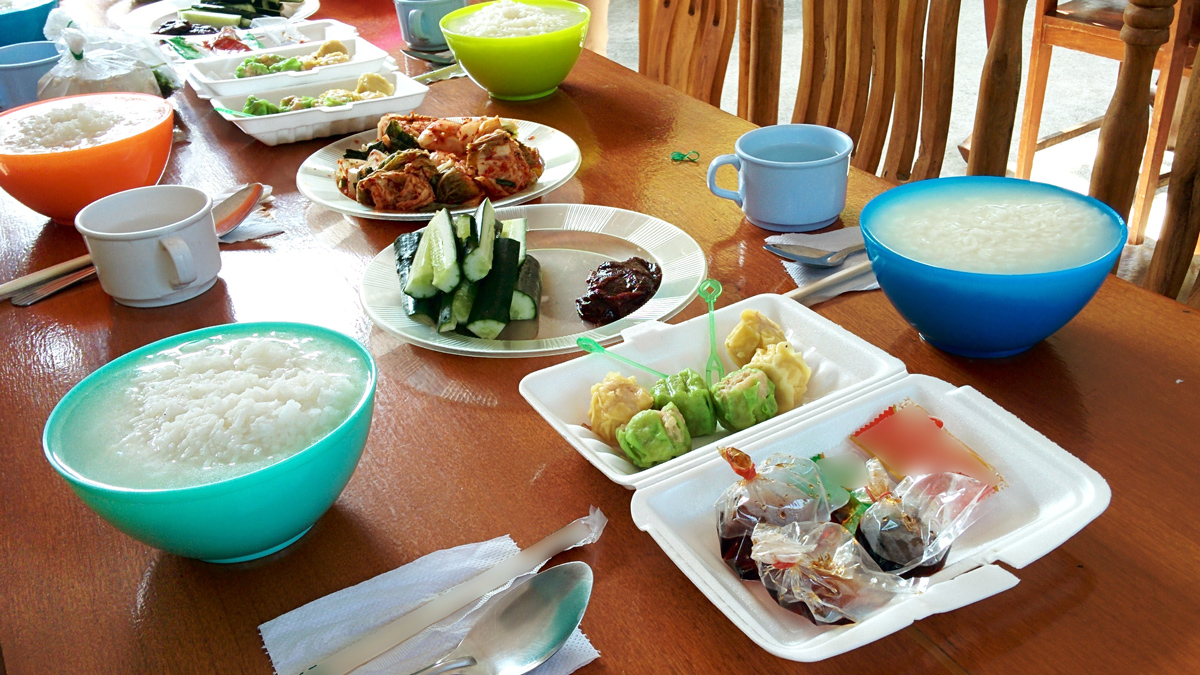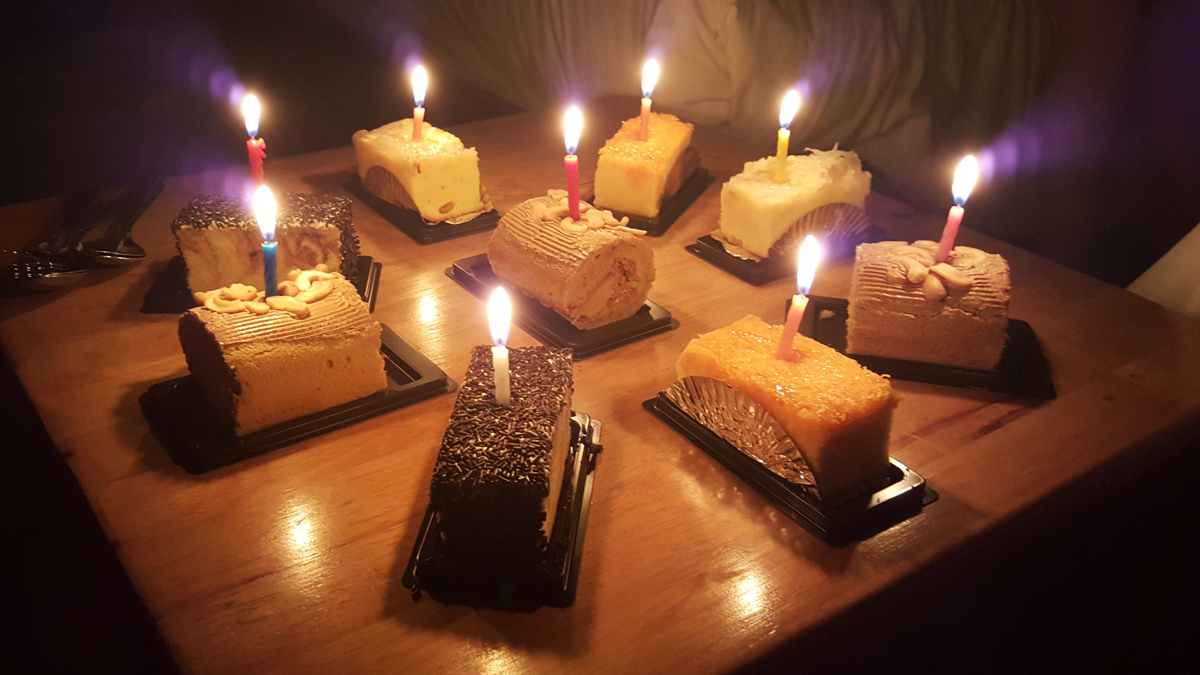Joy's Story: Part 1 - Growing Up in North Korea

I didn’t have a dream for my future when I was a child because my family was just trying to survive. My dad ran a farm, but one day the regime took all of his property. We had to start illegally selling wood to make money. We were always worried that we would get caught. We lived in constant fear and anxiety.
I remember not being able to eat for two days. My parents went into the mountains to find grass to boil and eat. Once we couldn't find grass, so my dad and I went to someone's cornfield. He carried me on his back and, when we got there, we pretended that I had to pee so I could go into the field and eat the unripe corn.
Eventually things got too hard for my mom, so she divorced my dad and left us. Life was so hard back then.

Because we never had enough money, there were a lot of arguments between my dad and my stepmom. There were other issues too—my sister’s husband tried to rape me. My father and stepmother also tried to marry me off when I was a teenager. I understood that they couldn’t keep taking care of me because of the economic situation, but I didn’t want to get married. When they set up a meeting with a prospective partner, I didn’t go but lied to my parents that I had and didn’t like him at all, mentioning a lot of bad things about the guy although I had never met him. I felt bad for him, but I had to do that because I didn’t want to get married.
Eventually, I decided to leave for China, hoping that I would have a better life there. I didn’t want to go to South Korea at the time because I heard a lot of rumors about how difficult living there was for North Korean people. Instead, I wanted to find an old Chinese couple, like my grandma and grandpa, who would let me live with them in exchange for taking care of them. I was naive.
I cried a lot at the idea of leaving my family and friends. I couldn’t tell my family that I was going to China, but I did tell some of my close friends. I asked them to give my goodbye letters to my family. I felt so apologetic to my father that I didn’t do much for him as his daughter. Before then I didn’t like my father because, after the regime took away his farm, he started drinking a lot and not taking care of our family, yet I just couldn’t help feeling heartbroken leaving him. I also got to spend 3 days with my mom who lived far away from my family before I went to China. At the time I got to have a lot of conversations that brought us a lot of healing and reconciliation.
I wasn’t sure if I would see my family again because of the possibility of getting caught while escaping to China. Before I left, I got some opium and carried it underneath the collar of my shirt so I could take it to kill myself in case I got caught.

I found a broker who gave money to the border guards so they didn’t patrol when I was supposed to cross the Tumen river. When I got to the middle of the river I felt that the ice was quite thin so I had to crawl to cross the rest of the river that was covered by snow. I didn’t realize that moment but later after I arrived I realized that my feet got so swollen because they got frozen from crawling the river in the snow. I couldn’t feel my feet for a while.
Continue reading Part 2 of Joy's story, focused on her time spent hiding in China.
You can support North Koreans like Joy by donating to our work. To date, we have helped over 1200 North Korean refugees reach freedom and safety through rescues. Learn how you can help.
Women’s History Month: Honoring the Bravery of North Korean Women
By: Jennifer Kim
Jennifer* is Liberty in North Korea’s Field Manager. Over the years, she’s carefully stewarded our secret rescue routes and helped countless North Korean refugees reach safety and freedom.
Approximately 70% of North Korean defectors are women. Throughout their journey, they face unimaginable challenges, including human trafficking, confinement, and sexual violence.
For Women’s History Month this year, we asked Jennifer to share her experiences supporting North Korean women who have made the brave decision to escape, and bring light to the stories of real people behind the numbers and statistics.

A Transformative First Mission
When I first began this line of work, I was filled with both excitement and anxiety. “Will I be able to connect well with these people?” “Will the field be too dangerous?” Even in my position as a staff member, there were times when the situations we encountered felt riskier because I was a woman.
On my first mission, the group we brought to safety were all women. From their small requests, like asking for sanitary pads, to moments where they cautiously shared their harrowing experiences of human trafficking in China, I found that we could connect on a deeper level because I was also a woman. I realized my role wasn’t just to be a staff member, but to stand by these people as they needed me, as a fellow woman. From then on, the fear I had initially felt about this work transformed into conviction.
North Korean Women At the Forefront of Resistance and Survival
After meeting many North Korean women defectors, I’ve come to learn that there are unique challenges and experiences that only they face. Women in North Korea are not as restricted to job assignments as men, so they’re the ones actively engaged in informal economic activities. They’re running their own black-market businesses and trading smuggled goods, shifting economic power from the regime into the hands of the ordinary people.
Women also make up the majority of North Korean defectors at over 70%. In freedom, they’re leading advocacy efforts and raising awareness for this issue.
I've come to think that perhaps women in North Korean society were the first and most desperate to stand up in resistance.

At the same time, the reality is that women are more vulnerable to gender violence and crime. The moment they cross the North Korean border and set foot on Chinese soil, their precarious legal status and the fact that they are women become risk factors that can lead to human trafficking, sexual exploitation, and forced prostitution. If these dangerous situations lead to pregnancy and childbirth, women often remain in China for years, even decades, weighed down by the conflicting emotions of their longing for freedom and their maternal instincts.
All of the women I met during my first rescue mission were survivors of being trafficked into forced marriages. While there are some cases where these women meet kind families and live in a relatively less dangerous environment, most have to endure difficult lives. One woman who we rescued in 2024 said that in the early stages of her life in China, she was confined and tied up in a single room by the man who bought her. Others had to do forced labor in one of China’s many factories.
Not a News Story, But a Person’s Story
About ten years ago, I watched a video of a woman my age testifying about the hardships and sexual violence she experienced during her defection from North Korea. As a South Korean, I couldn't believe that such things were happening just across the border. Shocked and ashamed of my indifference, I cried for a long time, then resolved to do something.
North Korea used to be something I only saw and heard about through a TV screen. Now those distant news stories have become the personal experiences of the North Korean mothers and friends I’ve met in the field.
At first, I simply wanted to help as best I could. But as time went on and I met more North Koreans, my perspective gradually changed. Now, I feel like I'm not so much ‘helping’ as I am meeting incredible superwomen who have overcome tremendous adversity.
My role is to constantly remind them of their resilience and potential, so they don't forget it themselves.

“This is My First Time Being Treated Like a Queen”
After a successful mission, our team ensures our newly arrived North Korean friends have a proper meal, get some rest, and receive basic necessities. On one occasion, one woman told me, “This is the first time in my life that I have been treated like a queen.”
She had just reached freedom after ten years in a forced marriage to a Chinese man. Her words resonated with me deeply. I realized once again that our work isn't simply about helping people achieve physical freedom; it's about restoring a person's forgotten dignity.
That woman has since resettled in South Korea and runs a small shop. She’s continued to stay in contact with LiNK, sharing updates about her life. One day, she shyly announced her marriage. She’s starting a new chapter with a person she chose and wanted.

Walking Together In Solidarity
Through the friendships I’ve made and stories I’ve witnessed in the field, my connection to this issue has deepened over time. These women aren’t just “nameless” North Koreans, but people like us, living their daily lives; someone’s daughter, sister, or mother. I didn’t set out to do this work for over a decade. But day by day, hearing each story, meeting each person, and holding their hands has naturally led me down this path.
Listen to their stories, and I believe that you too will encounter a heart for the North Korean people.
– Jennifer Kim, LiNK Field Manager
*Jennifer is a pseudonym used to protect our field manager’s identity and avoid compromising this work.

Help North Koreans Win Their Freedom
From inside the country to on the global stage, North Korean women are driving change on this issue. Driven by necessity, desire to care for their loved ones, and aspirations to forge their own path in this world, their pursuit of freedom is both intentional and instinctive.
Liberty in North Korea doesn't just extend a helping hand to North Korean refugees—we’re cultivating the next generation of North Korean leaders, entrepreneurs, and advocates, and doing this work alongside them.
Become a monthly donor today at $20 per month to help more North Koreans reach safety and gain full authorship of their lives in freedom.




